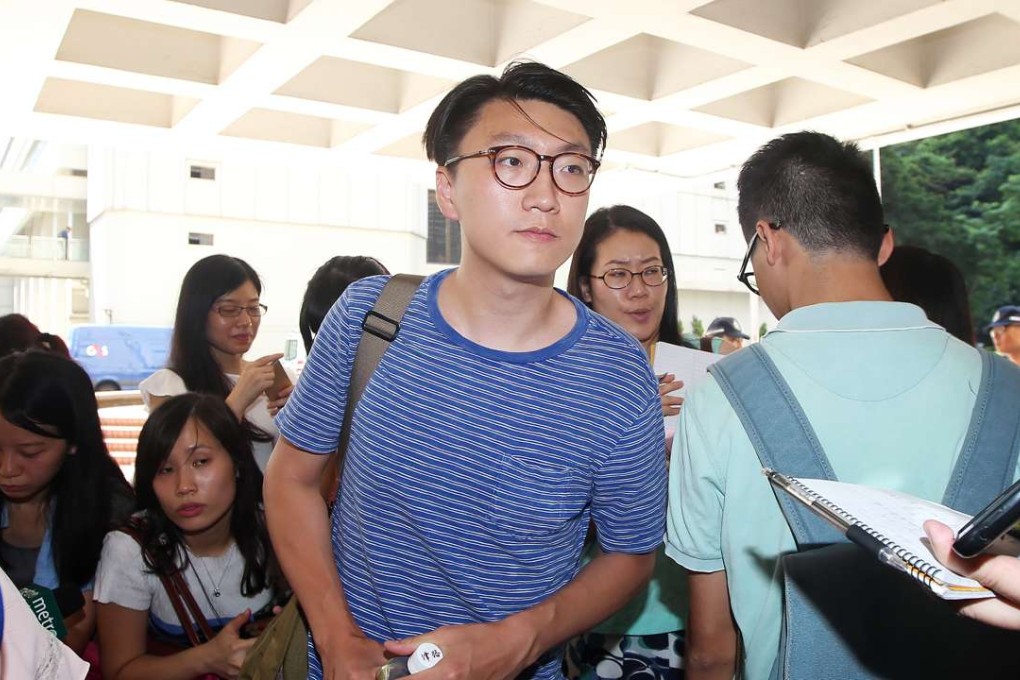Controversial new rule for Legco elections candidates faces first batch of legal challenges
Localist activist Edward Leung and League of Social Democrats chairman Avery Ng file separate applications for judicial review of measure

The High Court will hold an urgent hearing on Wednesday to decide whether to allow a legal challenge to a new election rule targeting independence advocates.
Candidates preparing to run in September’s Legislative Council elections on Monday filed two separate applications for judicial reviews, arguing that the city’s election watchdog had acted beyond its powers.
Three aspirants are racing against time to get a court decision before the nomination period for candidates ends on Friday.
In a related development, two more localist candidates received inquiries from the Electoral Affairs Commission about their stance on independence.
Radical localist leader Edward Leung Tin-kei and two pan-democrat candidates, Avery Ng Man-yuen and Chan Tak-cheung, challenged the legality of the commission’s new confirmation form, which asks candidates to specifically acknowledge three parts of the Basic Law that state Hong Kong is an inalienable part of China.